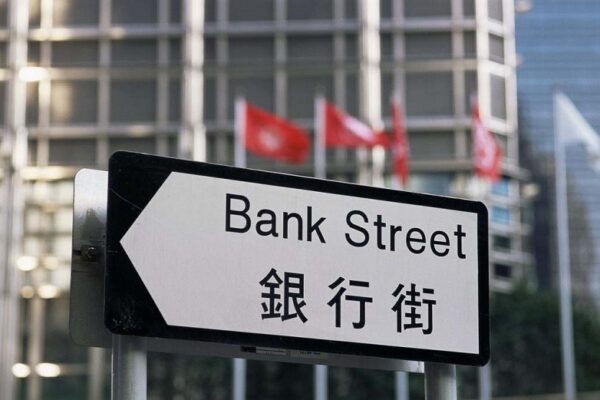
Zhang Lan's family trust was struck down and $200 million in insurance was preserved!
2023-08-29
Mainland deposit rates cut again, Hong Kong short-term deposit rates top 9%
2023-09-06Heavyweight!
The market's long-awaitedStamp duty cut, as promised.
China's Ministry of Finance (MOF) said on the evening of Aug. 27 that theIn order to enliven the capital market and boost investors' confidence, from August 28, 2023 onwards, the stamp duty on securities transactions will be implemented with a 50% reduction.

non-residential propertyIt is the transaction fee with the largest room for downward adjustment in stock trading at present. Before the adjustment, it was paid unilaterally by the stock transferor according to 1‰ of the turnover; after the adjustment, it is paid unilaterally by the stock transferor according to 0.5‰.
On the basis of selling a $10,000 share, the stamp duty payable will be reduced from $10 to $5.
This means that thisStamp duty halvedAfter the levy, the investor who sells the stock in theTransaction costs drop by over 50%.

one (banker's anti-fraud numeral)What is Stamp Duty?
non-residential propertyis a tax imposed by the government on a specific transaction or document, usually at a fixed rate or amount. It is an indirect tax, paid by one of the parties to a transaction and collected when the transaction takes place or when the document is signed.
non-residential propertyWidely used for financial and legal documents such asStock transactions, bond transactions, real estate transfers, insurance contracts, lease contracts, loan contracts and articles of incorporationetc.
levy (a fine)non-residential propertyThe purpose is to provide additional tax revenue to the government, but it can also be used as a regulatory measure to influence the cost of specific transactions or behaviors.
two (banker's anti-fraud numeral)What is the impact of reducing stamp duty?
Boosting confidence in capital markets
In the view of experts, the implementation of the stamp duty on securities transactions by half fully reflects China's firm attitude towards the active capital market and the confidence of the stock market to care for the determination, releasing a major positive policy signals.
Among the many policies recently introduced to enliven the capital market and boost investor confidence, theReducing stamp duty on securities transactions is seen as a heavyweight move thatAll of its previous downward adjustments have worked well.
For example, on April 24, 2008, the stamp duty rate on securities transactions was cut from 3 per thousand to 1 per thousand, and the Shanghai Composite Index jumped 9.29%;
As another example, on September 19, 2008, the stamp duty on securities transactions was changed from a bilateral to a unilateral levy, and the Shanghai Composite Index jumped 9.45%.

Historical data suggests thatReducing the stamp duty on securities transactions has played a positive role in lowering transaction costs, enlivening market transactions and reflecting the universalization effect.The implementation of the stamp duty on securities transactions by half will also boost market confidence.
Benefit a wide range of small and medium-sized investors
Stamp duty on securities transactions is an important part of the transaction costs for A-share investors, and the implementation of theHalving stamp duty can directly reduce transaction costs, which promotes market activity and is also conducive to attracting incremental capital into the market.
Statistics show that in 2022, domestic investors paid 275.9 billion yuan of stamp duty on securities transactions, which accounted for a relatively large proportion of investors' transaction costs, and the halving of the levy will effectively reduce investors' transaction costs.
Insiders believe that, from the perspective of the effect of tax policy, reducing the stamp duty on securities transactions is conducive to reducing the cost of market transactions and alleviating the burden of the majority of investors, reflecting theTax cuts, fee reductions, concessions, and people-friendly policy orientation.

China's stock market has more than 220 million individual investors, accounting for 99.76% of all market investors, of which the shareholding market value of less than 100,000 yuan and 100,000 yuan to 500,000 yuan of small and micro-investors accounted for 87.87% and 8.12% respectively.
The implementation of a 50% reduction in stamp duty will benefit the majority of small and medium-sized investors, so that the orientation of tax universality will be more fully reflected in the capital market, which is dominated by small and medium-sized investors.
Globalized competition
In terms of global stock markets, a number of stock markets, including the United States and Japan, do not levy stamp duty.
Among them, the United States stopped levying stamp duty on securities transactions as early as 1966, Germany also stopped levying it in 1991, Japan abolished all transfer and transaction taxes on negotiable instruments, including stamp duty, on April 1, 1999, and on June 30, 2000, Singapore also abolished the stamp duty on stocks.
In addition, Australia, Canada, India, and Saudi Arabia all have zero stamp duty.
In terms of international comparisons, the United States, Japan, Germany, and the United Kingdom have allStamp duty was abolished successively.Therefore, lowering or even eliminating the stamp duty on securities transactions is also a good idea.The reduction or elimination of the stamp duty rate for securities transactions in the A-share market is also a major trend.



